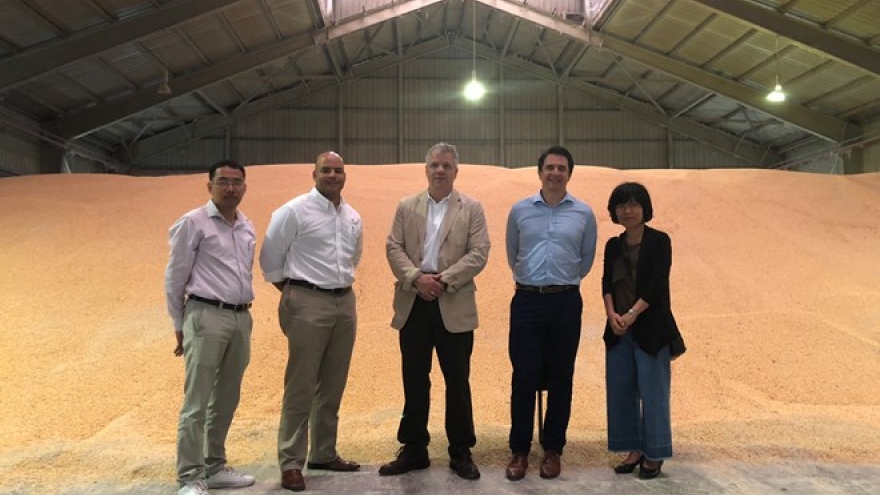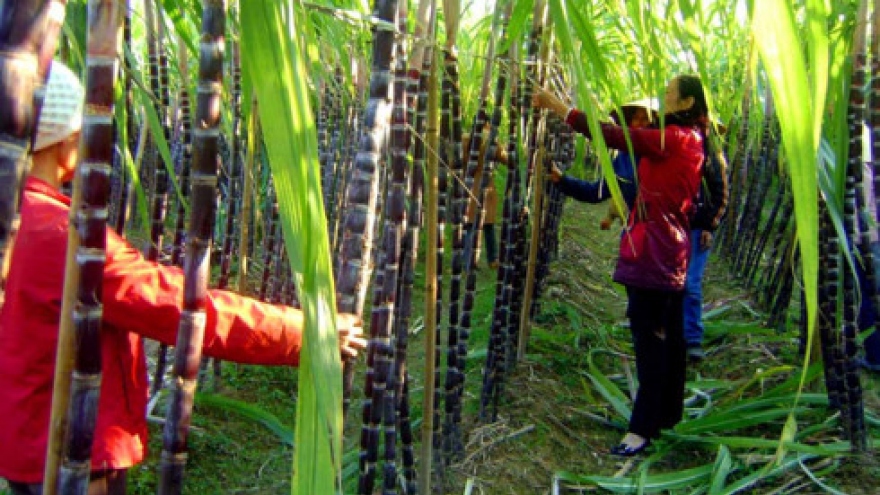Tech can improve competitiveness of Vietnam’s corn
Over the last five years, the high demand in the Vietnamese corn sector combined with the limited available land and the continuous increases in imported corn volume force Vietnamese farmers and the local corn sector to apply science and technological solutions to increase their capacity.
 |
However, over the past five years, Vietnam spent massive amounts of money importing corn seeds to serve the local animal feed processing industry. Notably, in 2016, Vietnam’s corn import turnover reached $1.65 billion, equaling 75 per cent of the country’s rice exports.
In the first four months of this year, the imported corn volume increased in terms of quality and value, while the price of imported corn seeds has been continuously increasing, creating disadvantages for the local agricultural sector in general and the corn sector in particular.
Vietnam reached a breakthrough in corn production with an increase from 1.1 million tonnes in 1995 to 4.6 million tonnes in 2010, with the government’s approval to use a new generation of corn seeds and to expand the cultivation area considered key factors for the development.
In order to achieve another revolution in the corn sector as well as meet the target to increase corn production by 40 per cent against the backdrop of climate change and limited available land, Vietnamese farmers need new support policies in order to be able to approach the issue with international standards of technology.
Helping farmers to acquire new corn seeds to increase their capacity and to improve the quality of the corn, ultimately resulting in a greater capacity and value of their products, is considered an important step.
One of the technologies chosen by more than 18 million farmers across the world over the past two decades in order to produce high-quality commercial seeds is pest-resistant and herbicide-resistant technology.
With this technology, the plant is protected from damage caused by insects and weeds as well as from fumomisin – the carcinogenic toxin produced by the mold caused by insect pests. This helps to maximise productivity as well as quality. This technology started to be applied in Vietnam in 2015 and has brought significant benefits so far.
Aruna Rachakonda, CEO of Dekalb Vietnam stated, “During its 20 years of accompanying farmers, Dekalb Vietnam has always been striving to bring technology solutions to help Vietnamese farmers increase the quantity and quality of their crops. Dekalb Vietnam’s corn hybrids helped Vietnamese farmers in numerous regions increase corn yield by 40 per cent compared to local corn seeds.”
In 2015, Dekalb Vietnam introduced insect-resistant and herbicide-tolerant corn seeds to farmers for the first time. After two years, farmers reported that the quantity of corn increased by 20 per cent, resulting in a 20-30-per-cent increase in income.
In 2017, the income from all fields applying the pest- and herbicide-resistant corn seeds saw signs of increase. Notably, farmers reported a 20-per-cent increase in capacity and a 20-30-per-cent increase in economic gains.
Better corn grain quality, reducing the risk of aflatoxin contamination arising from pest bites, is one of the key elements of this technology to help farmers increase their competitiveness with imported products, which are produced with similar technology.
After receiving the new corn seeds, almost all farmers were satisfied with their bumper crops.
According to Nguyen Van Dang, a farmer in the Mekong Delta province of An Giang, the new corn seeds created higher profit than the previously used ones. “I spent VND700,000 ($30.9) more on the new corn seeds from Dekalb Vietnam and earned VND3.5 million ($154.52) more in profits – five times the investment cost. Along with the increase in profits, I saved a lot of time on weeding and costs to spray pesticide, thanks to the new variety DK6919S,” Dang stated.
“We are very excited about the results of the application of new corn varieties,” said Tran Quang, a farmer in the southern province of Dong Nai, who is also chairman of the Xuan Tien Corn Co-operative.
“The area in the co-operative reaches 150 hectares. All 125 members of the co-operative have chosen to cultivate the new corn hybrid DK6919S, since it helps us to save costs and labour and improves our profits. The average yield of the dried seeds is 10 tonnes per hectare – double the national average.”



